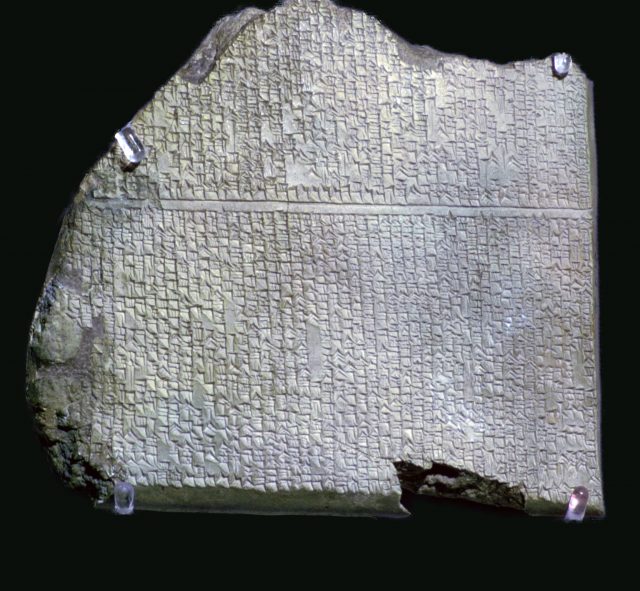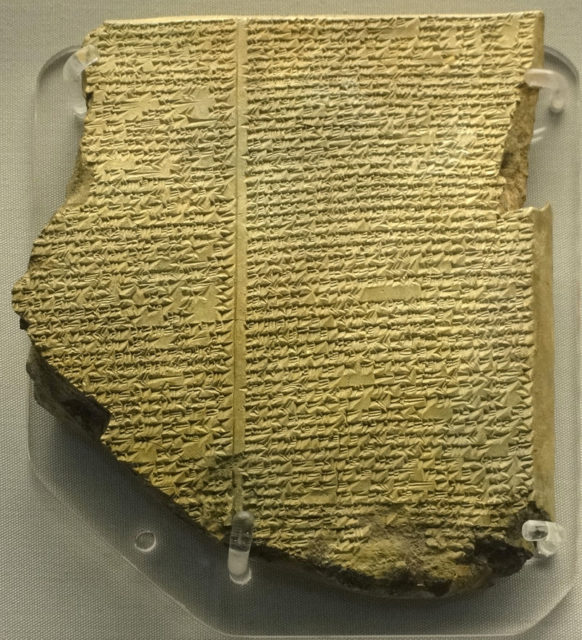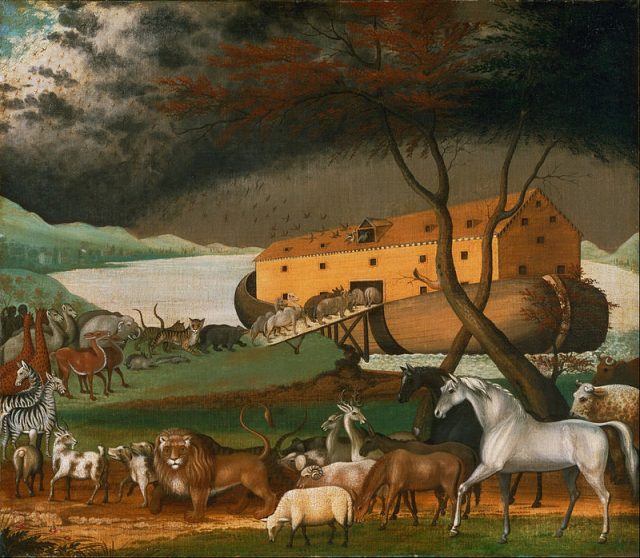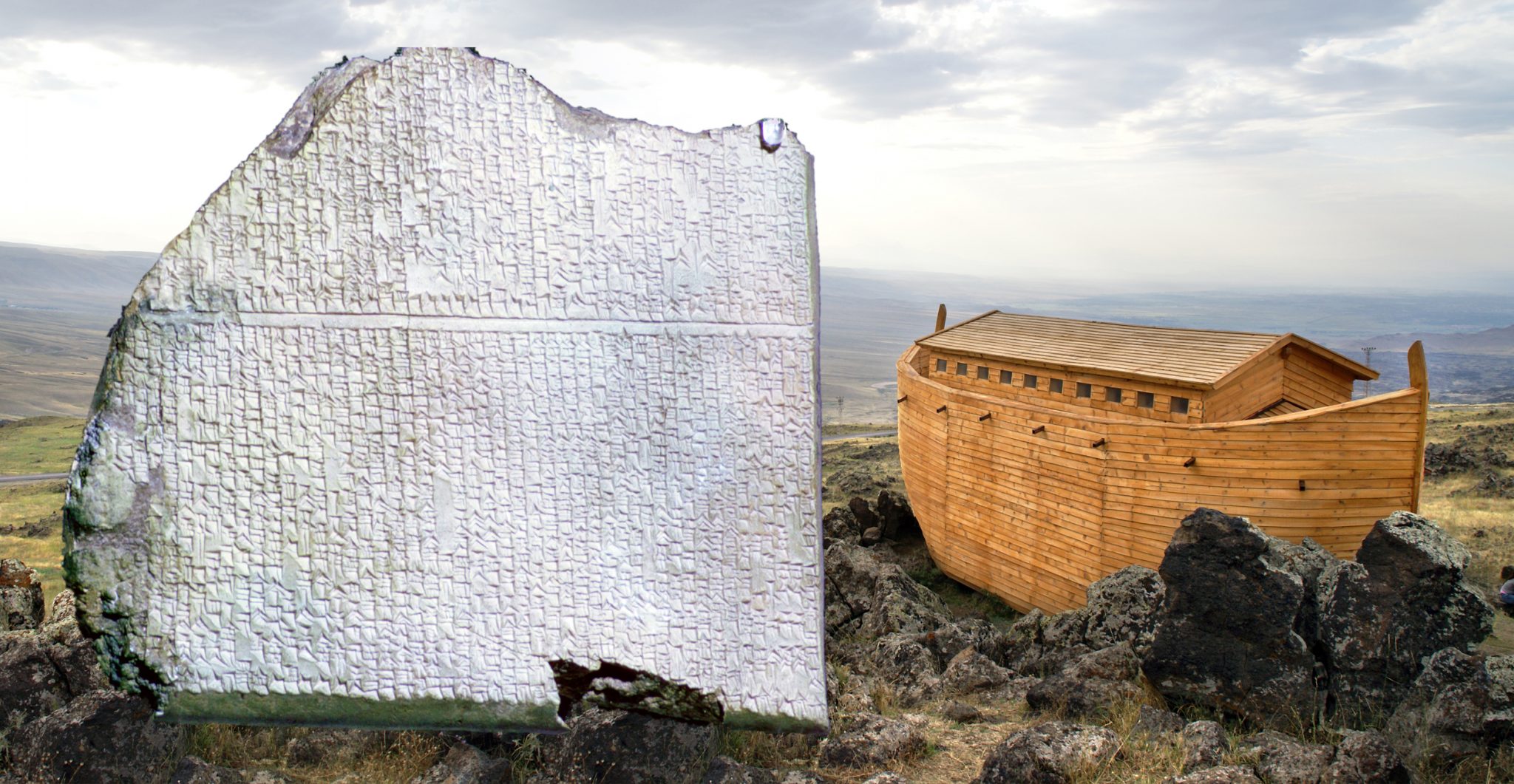A new study says a trickster Babylonian god used fake news to dupe the forerunner of Noah into building the ark before the Great Flood mentioned in tablet 11 of the Babylonian Epic of Gilgamesh. Fake news, for all the attention the phrase gets these days, is not a new phenomenon. In fact the term dates back to the 1840s, and was first used by a journalist in California.
However, one scholar in the U.K. has suggested, it dates back even before the 19th century. Dr. Martin Worthington, a scholar at the University of Cambridge, told Newsweek recently that, in fact, one of the clay tablets from the Epic of Gilgamesh, which contains a flood story widely believed to be the inspiration for the Biblical flood story, can be described as containing fake news.

“Ea (a god) tricks humanity by spreading fake news,” Worthington explained in a recent interview. “He tells the Babylonian Noah… to promise his people that food will rain down from the sky if they help him build the ark.”
The message was written to the forerunner of Noah on the 11th tablet of the Epic of Gilgamesh, a stone that is approximately 3,000 years old and on display at the British Museum in London. Worthington is an expert interpreter of the text carved into the tablet.

It’s all in how one interprets the stone’s message, Worthington told Newsweek, and that the Babylonian Noah opted for the optimistic reading, in a sense. But Ea was playing a “verbal trick” on him, the scholar explained. “What people don’t realize is the Ea’s nine-line message is a trick: it’s a sequence of sounds that can be understood in radically different ways…its hidden meaning warns of flood… I found multiple negative (lines) which warn of the impending catastrophe.”

The clay tablet’s tale is no doubt the most famous of all the ones written about in Biblical stories. After all, is there anyone — irrespective of religion — who doesn’t know the story of Noah herding his animals two by two onto the ark? In the Christian faith, it is a tale told in almost every Sunday school class around the world. It is one of the first stories told in the Book of Genesis, in the Old Testament.

The Flood Tablet, as it is formally called, was found in 1872 by George Smith. While others have been discovered since, the one telling Noah’s tale roused the most excitement in theological and historical circles, and scholars continue to struggle to understand their messages. The language used on them has not been spoken in 2,000 years; hence, each one has information that is open to interpretation.

Although Ea is known as a “trickster god,” Worthington said, folks ask why a god would lie to the Babylonian Noah about food raining down from heaven. He explained, “Babylonian gods survive because people feed them. If humanity had been wiped out, the gods would have starved. The god Ea manipulates language and misleads people into doing his will because it serves his self-interest. Modern parallels are legion!”
And therein lies Worthington’s assertion that the tablet offers the earliest example of fake news. A god lied to mankind in order to achieve his own ends. In an odd way, although it’s depressing to realize fake news has been around for thousands of years, it’s oddly reassuring, too.
Related Article: Owners of Huge Noah’s Ark Replica File Lawsuit Over Rain Damage
After all, if humankind has survived thus far in the face of mendacity and misdirection, they will likely survive in the coming decades, no matter how determined people are to bend the facts to suit their needs.
